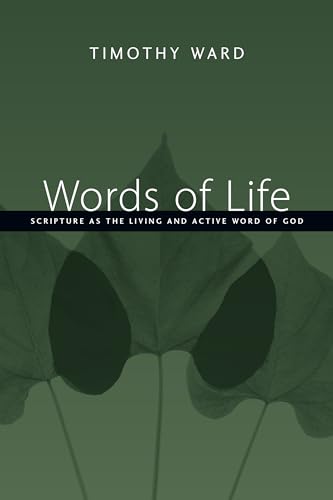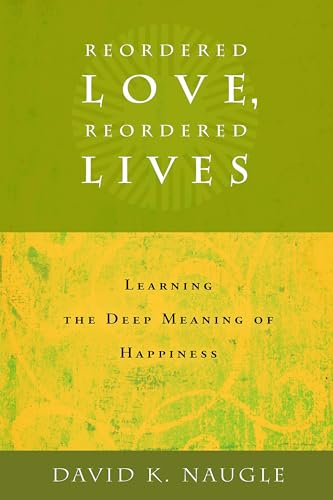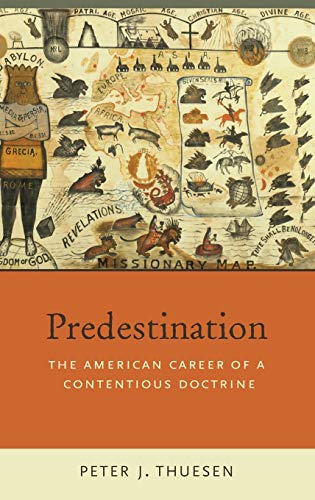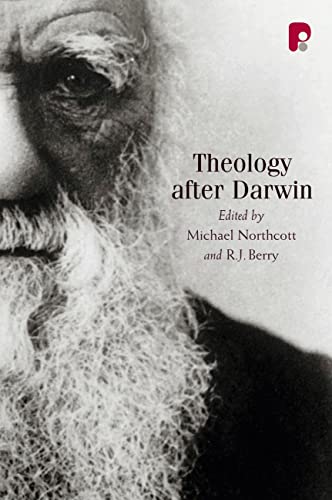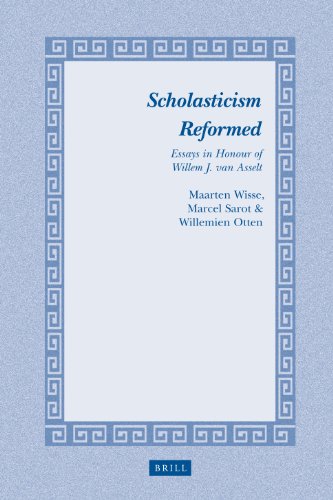Words of Life: Scripture as the Living and Active Word of God
Written by Timothy Ward Reviewed By Andrew CurryI read book reviews for numerous reasons: to read someone else’s opinion on a book I have read, to read someone else’s summary and opinion on a book that I have not read (and probably will not read), and sometimes to read someone tell me if it really is worth reading the book. If someone else reviewed Tim Ward’s Words of Life and did not tell me to read this book, he would have done me a great disservice.
Ward’s book gives a theological understanding of how God speaks and forms his covenantal relationship with us through Scripture; Ward explains this in such a way that we finish his book with renewed confidence that God does indeed use His word to speak to us today. This is the book’s greatest strength: it is not just a dry treatise on the infallibility of the Bible, but a book written by a man who understands that the truthfulness of the Bible is the basis of our confidence that God does speak to us clearly today through His word. Along the way, Ward deals with many of the views put forward about Scripture and interacts with them with the help of Reformed thinking. He draws heavily from Calvin, Turretin, Bavinck and Warfield, and ably defends the views of these theologians against some of the misunderstandings made against their writings.
The first chapter deals with Ward’s understanding of how God uses Scripture to communicate, and Ward argues that God’s Word is an extension of himself and his actions. He surveys the OT and NT, showing the close relationship between God’s actions and his words. This argument counters the accusation that some Christians privilege the Bible above God, thus worshipping the Bible, not God: Ward shows that it is when we listen to the Bible and obey it that we are listening to and obeying God, since God does not separate his actions from his words.
In the second chapter, Ward argues that the doctrine of Scripture is rightly located in our understanding of the Trinity: in other words, we do not formulate a view of Scripture in contradistinction to our doctrine of God. In fact, our doctrine of Scripture comes from the fact that God is a communicating God, and so Scripture is his way of entering into communion with us. In arguing this, Ward finds the concept of “speech-act theory” helpful. Speech-act theory, in its most basic form, argues that all words create a relationship: so, for instance, when a judge declares a defendant guilty (or not, as the case may be), the judge’s words have the effect of making a new relationship. Ward argues that this basic theory helps us understand how God speaks through Scripture: every time we hear Scripture spoken, God is declaring himself and his actions to us in order for us to enter into relationship with him. Scripture is God’s means of establishing a covenant with us. Although some Christians are suspicious of arguing from current philosophies (such as “speech-act theory”), Ward shows how the whole of Scripture is God’s speech-act in the most basic sense that God establishes a relationship with us through Scripture.
There are also useful discussions in chapter 2 on how we are to understand Scripture as both divine and human, and the Spirit’s role in inspiring, persevering, and illuminating Scripture.
In the third chapter, Ward uses this theological basis to present definitions and clarifications on the necessity, sufficiency, clarity, and authority of Scripture. Therefore, he interacts with some of the current debates among Christians today on the role of preaching (where he proposes that preaching must be faithful to Scripture if it is to be used by God to establish his relationship with people), and on the definition of inerrancy and its relation to interpretation.
In the last chapter, Ward deals with the relation between the church and Scripture. First, he deals with the question of Scripture and church tradition, contrasting the Catholic and Anabaptist positions with that of the magisterial Reformers at the time of the Reformation. This is a brilliant defence of why we cannot merely “start all over again” with the Bible, and ignore our church heritage: in some ways, this analysis is worth the book alone. Second, he deals with practical issues in the life of the church and of the Christian today, looking at the role of the preacher, and the use of the Bible in private reading: his warnings and advice in this area are healthy for any local church wishing to hear and obey God today.
Although Ward covers a lot of ground in 180 pages, he helps us as readers by pausing and giving summaries of his argument.
So, I am not going to do you a disservice: this is one of the clearest and most helpful books written on Scripture that I have read. It has given me greater confidence in using Scripture in my ministry so people can more clearly hear what God is saying to them, so it is a book worth buying and studying.
Andrew Curry
SIM (Serving in Mission)
Senegal, West Africa
Other Articles in this Issue
Most of us, I suspect, develop fairly standard ways, one might even say repetitive ways, to appeal to the motivations of our hearers when we preach the gospel...
How to Write—and How Not to Write—A Review: An Appreciative Response to Reviews of Ancient Near Eastern Themes in Biblical Theology by Dempster and Edgar
by Jeffrey J. NiehausI want to thank Themelios for the unusual opportunity to interact with two reviewers of my book Ancient Near Eastern Themes in Biblical Theology...
Parallels, Real or Imagined? A Review Article of Jeffrey J. Niehaus, Ancient Near Eastern Themes in Biblical Theology
by William EdgarWhen I came to Westminster Theological Seminary in Philadelphia as a young student in the 1960s, two things struck me...
Why Evangelicals Should Ignore Brian McLaren: How the New Testament Requires Evangelicals to Render a Judgment on the Moral Status of Homosexuality
by Denny BurkIn 2006 on Christianity Today’s leadership blog, Pastor Brian McLaren urged evangelical leaders to find a “Pastoral Response” to their parishioners on the issue of homosexuality...
A Member of the Family or a Stranger? A Review Article of Jeffrey J. Niehaus, Ancient Near Eastern
by Stephen DempsterWe cannot overstate how important knowing the context is for understanding the significance of any communication, whether that is a simple word, sentence, paragraph, larger text, sign, photograph, or cultural cue...


